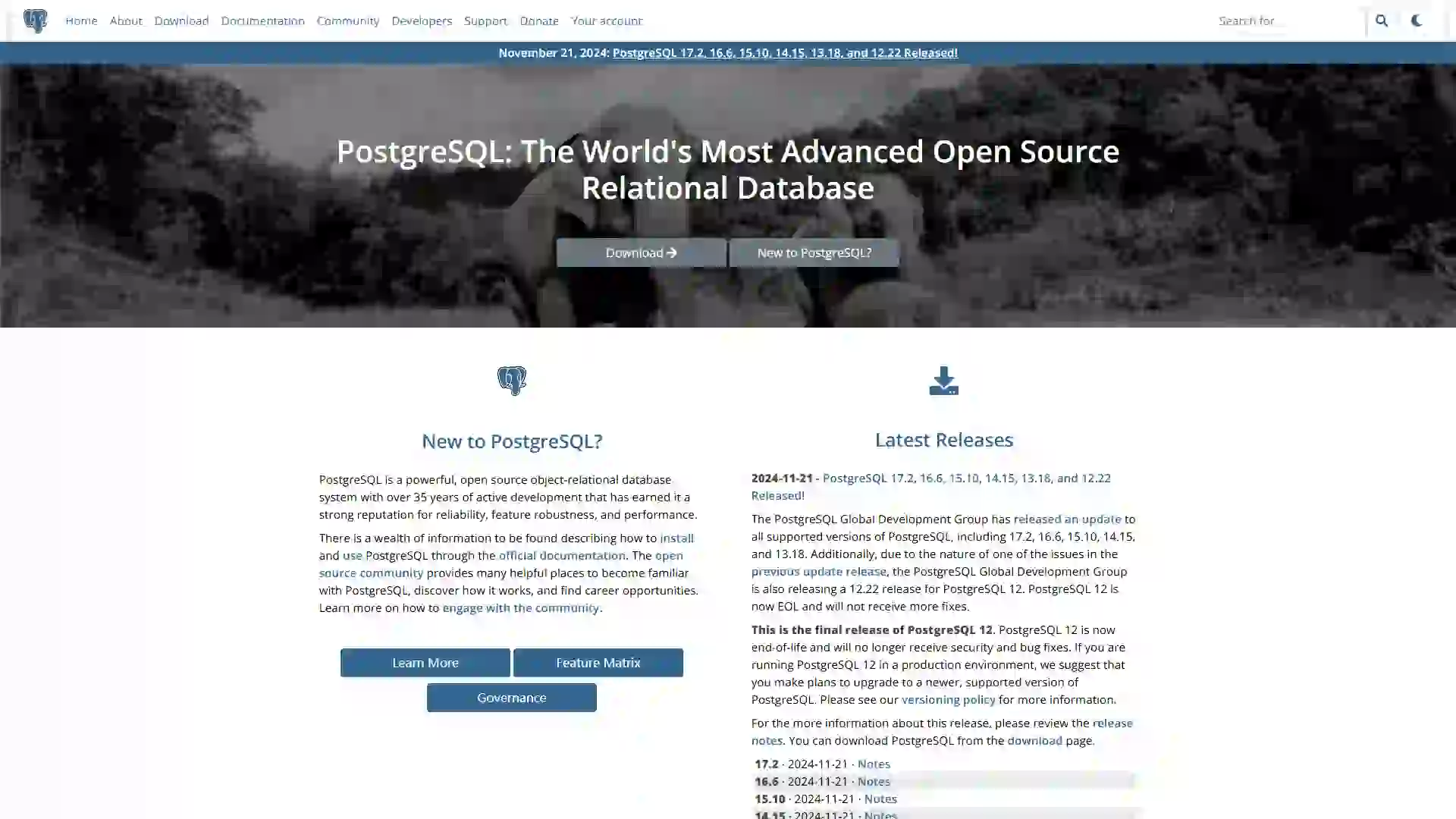- Home
- Development
- PostgreSQL
PostgreSQL
Summary
PostgreSQL is a robust open-source object-relational database system, renowned for its powerful capabilities in handling complex queries, transactions, and extensibility. It is widely adopted across enterprises and projects of varying scales, from startups to large corporations, due to its reliability and flexibility.
✨ Features
- High Extensibility: PostgreSQL excels in allowing users to create custom data types, functions, and stored procedures, making it highly adaptable to complex business requirements.
- Transaction Integrity: It provides comprehensive ACID transaction support, ensuring data consistency and reliability even under heavy workloads.
- Rich Feature Set: The system includes advanced features such as full-text search, JSON support, and geospatial data processing, making it a versatile choice for diverse applications.
- Open Source and Community Support: Fully open-source, PostgreSQL benefits from an active global community and extensive documentation, providing users with ample resources for learning and troubleshooting.
💼 Use Cases
- Enterprise Applications: Ideal for enterprise-level database systems that demand high reliability and complex querying capabilities.
- Data Warehousing: Supports large-scale data storage and analysis, making it a perfect fit for building robust data warehouses.
- Geographic Information Systems (GIS): With built-in geospatial data processing capabilities, PostgreSQL is well-suited for GIS applications.
- Web Applications: Its support for high concurrency and complex queries makes it an excellent choice for backend databases in web applications.
📉 Drawbacks
- Steep Learning Curve: For beginners, configuring and utilizing PostgreSQL may require a significant learning period.
- Complex Performance Tuning: In high-concurrency and large-data scenarios, performance tuning may necessitate specialized knowledge.
- Limited Official Support: While the community is highly active, official support is more limited compared to commercial databases.
❓ FAQ
Q1: What are the main features or benefits of PostgreSQL?
A1: PostgreSQL offers high extensibility, robust transaction integrity, a rich set of advanced features (such as full-text search and JSON support), and strong community support. It is highly reliable, versatile, and suitable for a wide range of applications.
Q2: How does PostgreSQL compare to other databases like MySQL or Oracle?
A2: PostgreSQL is known for its superior extensibility and advanced features like full-text search and geospatial data processing. Unlike MySQL, which is more user-friendly for beginners, PostgreSQL has a steeper learning curve but offers more powerful capabilities. Compared to Oracle, PostgreSQL is fully open-source and community-driven, making it more cost-effective and flexible, though Oracle provides more comprehensive official support.
Q3: Is PostgreSQL suitable for beginners?
A3: While PostgreSQL is a powerful tool with extensive capabilities, it has a steeper learning curve compared to some other databases. Beginners may find it challenging initially, but with the help of the active community and extensive documentation, they can gradually master it. It is highly suitable for professionals and organizations that require a robust and flexible database solution.
